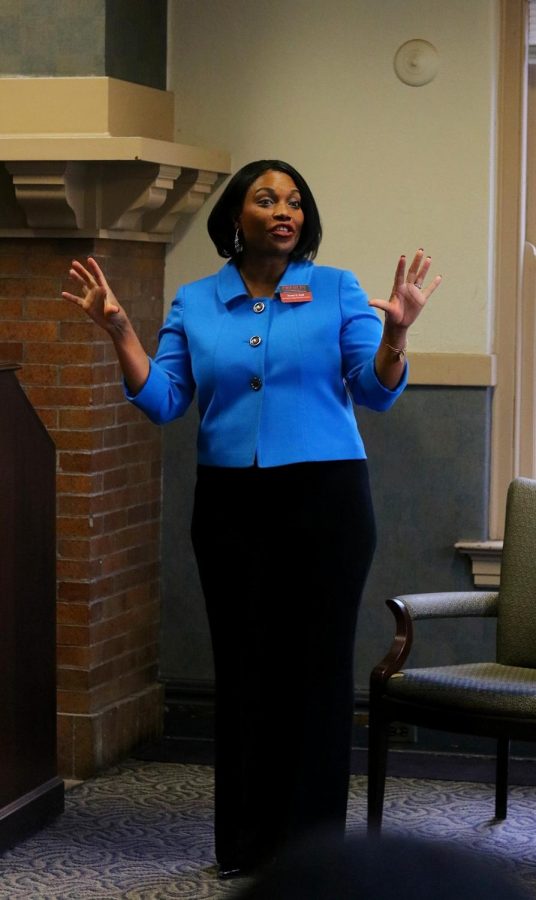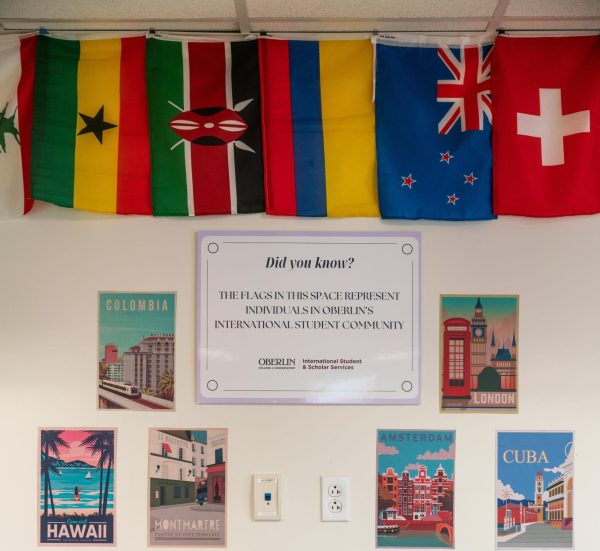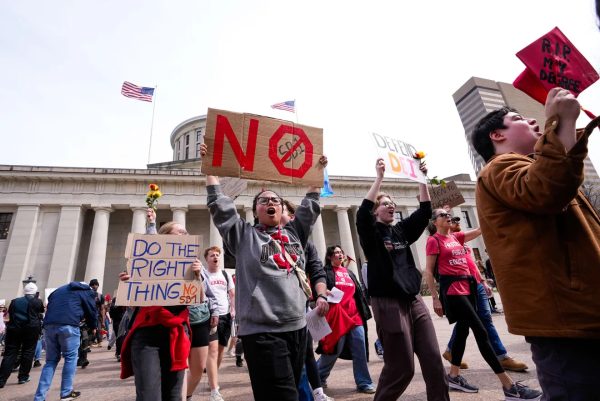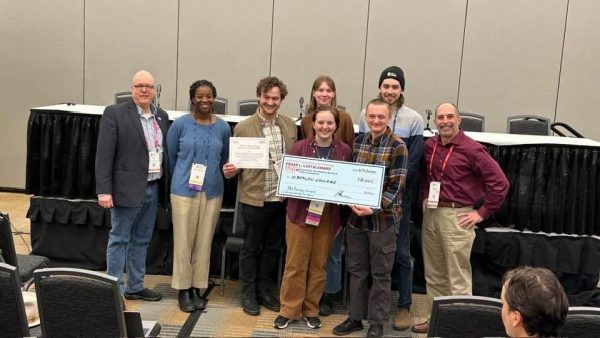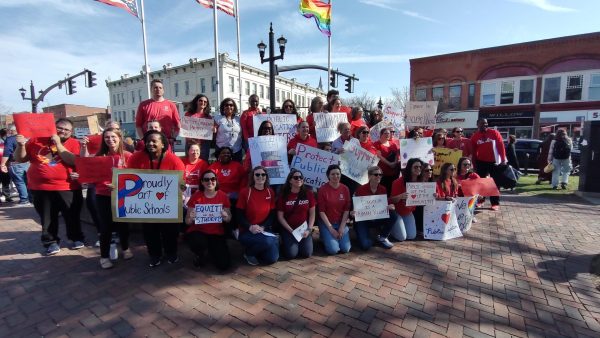Office of Religious, Spiritual Life Hosts Listening Session on Student Needs
Student, religious leaders, and Vice President and Dean of Students Karen Goff gather for a meeting to discuss the future of religious life on campus.
An event organized by the Office of Religious and Spiritual Life in association with the Division of Student Life on Thursday provided an opportunity for student leaders in Oberlin religious and spiritual life to gather with and meet local clergy, mentors, and teachers across traditions to discuss the state of religious life at Oberlin.
The 30-minute lunch featured a talk from Vice President and Dean of Students Karen Goff, who shared her vision for the possibilities for religious and spiritual life on campus.
“I would like us to reimagine how Religious and Spiritual Life, regardless of our faith traditions — or ‘no faith’ at all — can be a catalyst for meaningful dialogue and mutual understanding of each other’s perspectives and worldview while honoring and respecting differences,” Goff wrote in an email to the Review.
According to Director of Religious and Spiritual Life David Dorsey, Thursday’s event was a part of ongoing efforts by the Office of Religious and Spiritual Life to better cater to students of all beliefs and to help them connect with the greater community.
“[In November 2020], we offered a series of listening sessions for students where we just listened to what they wanted from religious life, in particular around the pandemic, social justice challenges of our day, climate change, and democracy and social equity issues,” Dorsey said. “There were some common themes: one was that we wished the diversity of religious life offerings matched the diversity of students, and was not simply duplicative of religious institutions around the square.”
Dorsey placed particular emphasis on the role of religious and spiritual representation in promoting diversity and inclusion for all students. He described how this summer’s listening sessions led to ideas of overarching change in the department.
“The students were exceedingly generous and kind about religious and spiritual life, but they were really pointing to structural pieces that either contribute to invisibility or to … challenges for finding mentorship that was a match for their personal interests,” Dorsey said.
Dorsey hopes that the Office can move toward a student-centered model, which would help connect students with a mentor that matched the student’s needs. “It’s tricky because many students wouldn’t know who they can choose from,” Dorsey said.
“Thursday is the beginning of what we hope will be a series of just bringing people together for connection and making sure that we’re doing our part in the office to facilitate connection [rather than] direct traffic.”
The discussion comes at a time when religious life leaders have spent the last two years addressing challenges, like being unable to gather or share food, that the pandemic created for religious life on campus.
“ORSL enjoys a rich relationship with our peers across student life and with local and area clergy,” wrote Multifaith Coordinator Maysan Haydar in an email to the Review. “In a way, the efforts made to improve student supports during the pandemic also improved our closeness as a division, since we all shared the same goals of checking in with students, helping them get into dorms safely and fed well, and to keep up their spirits during tough times.”
Goff also arrived at Oberlin at a time when the Division of Student Life was experiencing a period of change with high administrative turnover that involved four Student Life deans leaving within two months. Goff, whose background includes a master’s in Divinity and a history of involvement in issues surrounding religion, social justice, and pastoral care, looks forward to reimagining what the Office of Religious and Spiritual Life is capable of.
“The concept of ‘reimagining’ is just that — going beyond the status quo of what we have always done,” Goff wrote. “It means we have to be creative about our programs and services and to meet students and the community where they are. While there are standard traditional practices, spirituality spans religious beliefs. For example, I would like us to contemplate how Religious and Spiritual Life contributes to wellness or lean into the concept of spiritual formation as an act of social justice. The options are limitless if we are willing to allow our mind, body, and spirit to truly reimagine the possibilities.”


